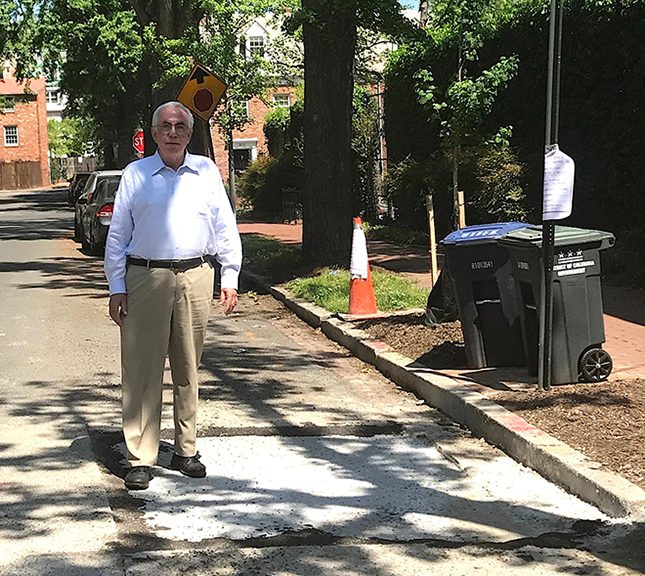Gas Leaks Rile Georgetown Residents
By • May 3, 2017 0 608

Ed Segal and his wife have owned homes and lived and worked on the east side of Georgetown off and on for the past 30 years. The conundrum of gas leaks has always been part of their Georgetown experience. They have lived through replacement of original pipe joints, the sudden explosion of flying manhole covers that happened in 2000 and calls every few months to the Washington Gas company emergency line with the scariest words of all: “Strong smell of gas!”
“Now I am fed up,” said the mild-mannered senior citizen during an interview in front of numerous “No Parking” signs on 27th Street NW. The signs have cleared the curbs of vital parking places for almost a month next to the Rose Park tennis courts and children’s playground, in a residential area with few private garages. Neighbors report that the signs go up and nothing happens until they’re renewed again.
“We call and email and Facebook the gas company with no response,” Segal said. “All we want is to know what is going on, when the work is going to be done and how our reports about regular strong gas smells are being addressed.”
The tipping point for Segal came last month. “I had called the gas company about a strong smell of gas outside my door. A crew responded immediately, confirmed the smells, tore up the street in front and worked late into a freezing night. They then left … never to return. When I finally got ahold of someone at the company, they said that they had no record of my call nor any work done.”
“Gas pipeline issues are a nationwide problem,” writes Segal in his blog, Georgetown Gas Leaks and Repairs. The consequences of ignoring or not dealing immediately and effectively with them can be devastating. In 2010, a gas line explosion in San Bruno, California, a suburb of San Francisco, created a 50-foot fireball, destroyed dozens of homes and killed eight people. In August 2016, a gas explosion at a Silver Spring apartment complex killed seven people and injured dozens

